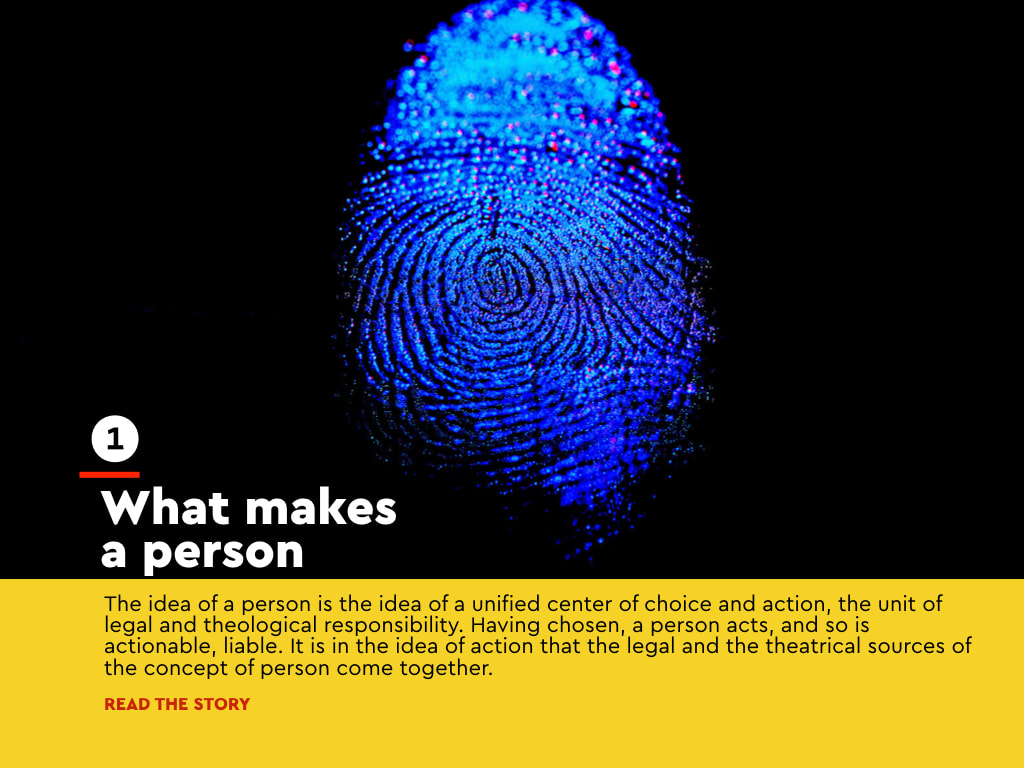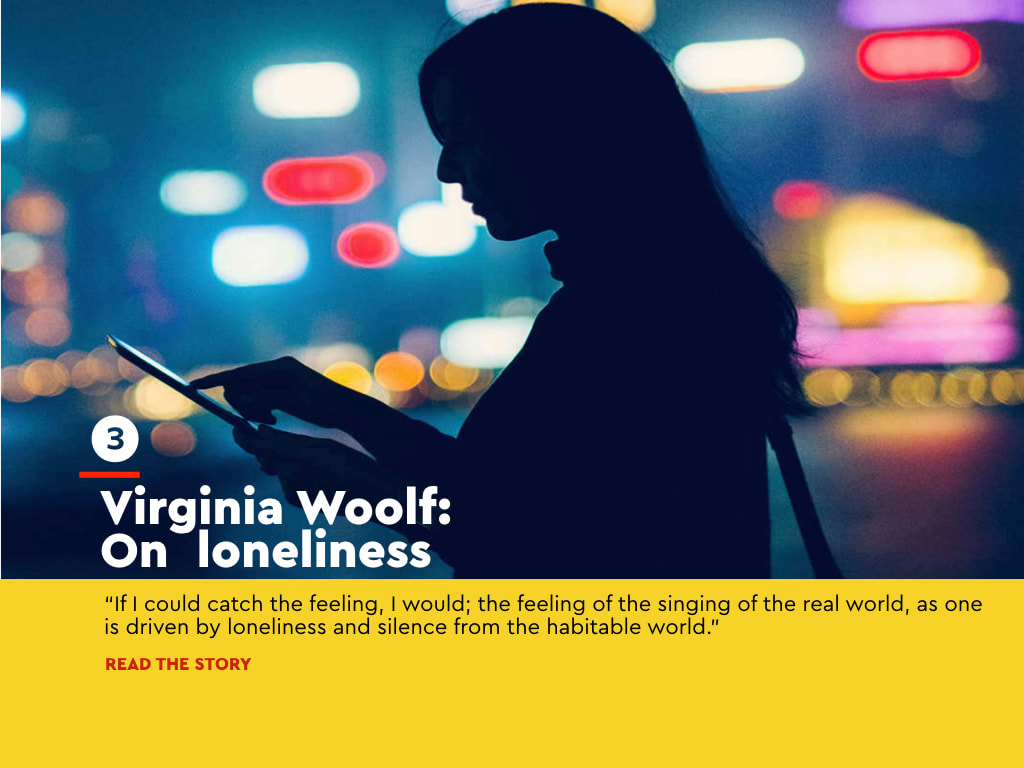Love, Lunacy, and a Life Fully Lived:
Oliver Sacks
_
A touching celebration of the “intense sense of love, death, and transience, inseparably mixed.”
|
|
“I have been able to see my life as from a great altitude, as a sort of landscape, and with a deepening sense of the connection of all its parts,” visionary neurologist Oliver Sacks (July 9, 1933–August 30, 2015) wrote in his poignant, beautiful, and courageous farewell to life. In one final gesture of generosity, this cartographer of the mind and its meaning maps the landscape of his remarkable character and career in On the Move: A Life(public library) — an uncommonly moving autobiography, titled after a line from a poem by his dear friend Thom Gunn: “At worst,” wrote Gunn, “one is in motion; and at best, / Reaching no absolute, in which to rest, / One is always nearer by not keeping still.” Sacks’s unstillness is that of a life defined by a compassionate curiosity — about the human mind, about the human spirit, about the invisibilia of our inner lives. The book is not so much an autobiography in the strict sense as a dialogue with time on the simultaneous scales of the personal (going from world-champion weightlifter to world-renowned neurologist), the cultural (being a gay man looking for true love in the 1960s was nothing like it is in our post-DOMA, beTindered present), and the civilizational (watching horseshoe crabs mate on the beaches of City Island exactly as they did 400 million years ago on the shores of Earth’s primordial seas). This record of time pouring through the unclenched fingers of the mind’s most magnanimous patron saint has become one of the most rewarding reading experiences of my life — one I came to with deep reverence for Dr. Sacks’s intellectual footprint and left with deep love for his soul. Like Marie Curie, whose wounds and power sprang from the same source, Dr. Sacks’s character springs from the common root of his pain and his pleasure. At eighty, he reflects on a defining feature of his interior landscape: I am shy in ordinary social contexts; I am not able to “chat” with any ease; I have difficulty recognizing people (this is lifelong, though worse now my eyesight is impaired); I have little knowledge of and little interest in current affairs, whether political, social, or sexual. Now, additionally, I am hard of hearing, a polite term for deepening deafness. Given all this, I tend to retreat into a corner, to look invisible, to hope I am passed over. This was incapacitating in the 1960s, when I went to gay bars to meet people; I would agonize, wedged into a corner, and leave after an hour, alone, sad, but somehow relieved. But if I find someone, at a party or elsewhere, who shares some of my own (usually scientific) interests — volcanoes, jellyfish, gravitational waves, whatever — then I am immediately drawn into animated conversation… But Dr. Sacks’s intense introversion is also what made him such an astute listener and observer — the very quality that rendered him humanity’s most steadfast sherpa into the strange landscape of how minds other than our own experience the seething cauldron of mystery we call life. On one particular occasion, the thrill of observation swelled to such proportions that it eclipsed his chronic introversion. He recounts: I almost never speak to people in the street. But some years ago, there was a lunar eclipse, and I went outside to view it with my little 20x telescope. Everyone else on the busy sidewalk seemed oblivious to the extraordinary celestial happening above them, so I stopped people, saying, “Look! Look what’s happening to the moon!” and pressing my telescope into their hands. People were taken aback at being approached in this way, but, intrigued by my manifestly innocent enthusiasm, they raised the telescope to their eyes, “wowed,” and handed it back. “Hey, man, thanks for letting me look at that,” or “Gee, thanks for showing me.” In a sense, Dr. Sacks has spent half a century pushing a telescope into our hands and inviting us, with the same innocent and infectious enthusiasm, to peer into an object even more remote and mysterious — the human mindscape — until we wow. And although he may paint himself as a comically clumsy genius — there he is, dropping hamburger crumbs into sophisticated lab equipment; there he is, committing “a veritable genocide of earthworms” in an experiment gone awry; there he is, watching nine months of painstaking research fly off the back of his motorcycle into New York’s densest traffic — make no mistake: This is a man of enormous charisma and grace, revealed as much by the details of his life as by the delight of his writing. Nowhere does Dr. Sacks’s grace shine most luminously than in the disarming vulnerability — sometimes pensive, often poignant, always profound — with which this great seer discusses the heartbreak of not being seen himself, especially when it comes to the most intimate frontier of the human psyche. He recounts a pivotal conversation with his father as he was about to depart for his university studies at Oxford at the age of eighteen: “You don’t seem to have many girlfriends,” he said. “Don’t you like girls?” “They’re all right,” I answered, wishing the conversation would stop. “Perhaps you prefer boys?” he persisted. “Yes, I do — but it’s just a feeling — I have never ‘done’ anything,” and then I added, fearfully, “Don’t tell Ma — she won’t be able to take it.” But my father did tell her, and the next morning she came down with a face of thunder, a face I had never seen before. “You are an abomination,” she said. “I wish you had never been born.” Then she left and did not speak to me for several days. When she did speak, there was no reference to what she had said (nor did she ever refer to the matter again), but something had come between us. This experience, which left an indelible imprint of shame on young Oliver’s mind, is doubly perplexing and heartbreaking in the context of his parents’ credentials — both were prominent physicians, which would ordinarily imply the unsuperstitious critical thinking that science espouses. In fact, his mother, a female surgeon and anatomist at the dawn of the twentieth century, was a trailblazer for women in science — so much so that his father would jokingly refer to himself as “the husband of the eminent gynecologist Elsie Landau.” And yet even here, Dr. Sacks is able to transcend the personal devastation and perform the great act of empathic inquiry that became the raw material of his work — a dedication to considering the complex reality of another, very different mind: We are all creatures of our upbringings, our cultures, our times. And I have needed to remind myself, repeatedly, that my mother was born in the 1890s and had an Orthodox upbringing and that in England in the 1950s homosexual behavior was treated not only as a perversion but as a criminal offense. I have to remember, too, that sex is one of those areas — like religion and politics — where otherwise decent and rational people may have intense, irrational feelings. And herein blooms a vibrant example of the very thing that makes the book so extraordinary — the elegance with which Dr. Sacks bridges the observations of the mind with the tribulations of the heart: My mother did not mean to be cruel, to wish me dead. She was suddenly overwhelmed, I now realize, and she probably regretted her words or perhaps partitioned them off in a closeted part of her mind. But her words haunted me for much of my life and played a major part in inhibiting and injecting with guilt what should have been a free and joyous expression of sexuality. That paralyzing inhibition followed him into university, but because guilt is a judgment of reason and the heart has its own emotive will, he eventually found himself falling in love for the first time — in spite of himself, in spite of his mother’s anguishing admonition, in spite of his brother’s well-meaning but woefully misguided effort to alleviate his sexual shyness by introducing him to a kindly French prostitute, who sensed young Oliver’s predicament and instead had “a nice cup of tea” with him. At Oxford, he met a young fellow named Richard Selig — a Rhodes scholar of enormous “vitality and love of life,” who “bore himself like a lion.” Dr. Sacks recounts those first flutterings of love: We got talking; I suspect that it was he who started a conversation, for I was always too shy to initiate any contact and his great beauty made me even shyer… His knowledge of the world was far greater than mine, even given the disparity of age (he was twenty-four; I was twenty), far greater than that of most undergraduates who had gone straight from school to university with no experience of real life in between. He found something interesting in me, and we soon became friends — and more, for I fell in love with him. It was the first time in my life I had fallen in love. I fell in love with his face, his body, his mind, his poetry, everything about him. He would often bring me just-written poems, and I would give him some of my physiology essays in return. […] We would go on long walks together, talking about poetry and science. Richard loved to hear me wax enthusiastic about chemistry and biology, and I lost my shyness when I did so. While I knew that I was in love with Richard, I was very apprehensive of admitting this; my mother’s words about “abomination” had made me feel that I must not say what I was. But, mysteriously, wonderfully, being in love, and in love with a being like Richard, was a source of joy and pride to me, and one day, with my heart in my mouth, I told Richard that I was in love with him, not knowing how he would react. He hugged me, gripped my shoulders, and said, “I know. I am not that way, but I appreciate your love and love you too, in my own way.” I did not feel rebuffed or brokenhearted. He had said what he had to say in the most sensitive way, and our friendship continued, made easier now by my relinquishing certain painful and hopeless longings. But just as young Oliver was making peace with the fact that he and Richard will only ever be friends — lifelong friends, perhaps — life took one of its cruel turns. One day, Richard showed up in Oliver’s room, concerned about a lump in his groin and asked his friend — since he was a medical student — to take a look. Oliver’s fears were confirmed — it was a malignant tumor. Richard was told he had no more than two years to live, and he never spoke to Oliver again. “I was the first to recognize the deadly import of his tumor,” Dr. Sacks writes with wistfulness so palpably and heartbreakingly unmitigated by the lapse of six decades, “and perhaps he saw me now as a sort of messenger or symbol of death.” He was so devastated that his studies began to suffer and his parents decided it was best for him to take a leave from Oxford and spend some time in “a friendly and supportive community with hard physical work from dawn till dusk” — so, in 1955, he joined a kibbutz. The experience was transformative in not just the intended ways: I had gone to the kibbutz as a pallid, unfit 250 pounds, but when I left it three months later, I had lost nearly 60 pounds and, in some deep sense, felt more at home in my own body. This was the start of Dr. Sacks’s love affair with the world of physique and strength training — a deeply personal proto-demonstration of something he’d later come to demonstrate as a pioneering neurologist: that the mind is indivisible from the body. In the years that followed, as he returned to clinical work, he also began weight training with a clinician’s systematic rigor. Eventually, he sliced through the country on the back of his beloved motorbike, armed with a camera and a newfound love for landscape photography — this, it bears repeating, is a man of ample talents — and made his way to Venice’s famous Muscle Beach. There, he came to be known as Dr. Squat for squatting with a gobsmacking 600 pounds — a feat by which he set the California state record in 1961. (Having done bodybuilding myself in a past life, my admiration for Dr. Sacks doubled.) Eventually, Dr. Squat traded in his bike leathers and weightlifting belt for the white coat of Dr. Sacks. He fell in love again with a young man named Mel, only to have his heart broken by Mel’s conflicted rejection: We enjoyed each other’s company for a year — the year of my internship at Mount Zion. We would go on weekend motorbike rides together, camping out, swimming in ponds and lakes, and sometimes wrestling together. There was an erotic frisson here for me, and perhaps for Mel too. Erotic with the urgent opposition of our bodies, though there was no explicit sexual element, nor would an observer have thought we were anything more than a couple of young men wrestling together. Both of us were proud of our washboard abdominals and would do sets of sit-ups, a hundred or more at a time. Mel would sit astride me, punching me playfully in the stomach with each sit-up, and I would do the same with him. This I found sexually exciting, and I think he did too; Mel was always saying, “Let’s wrestle,” “Let’s do abs,” though it was not a purposively sexual act. We could work our abdominals or wrestle and get pleasure from it, at one and the same time. So long as things went no further. I felt Mel’s fragility, his not fully conscious, lurking fear of sexual contact with another man, but also the special feeling he had for me, which, I dared to think, might transcend these fears. I realized I would have to go very gently. But like those of us who have experienced the devastating disappointment of failing to dissolve another’s private conflictedness by the sheer force of love, Dr. Sacks discovered that all the gentleness in the world was hapless against the hard edges of Mel’s inner inhibitions. When the erotic and romantic tension between them became too much to bear, Mel left, leaving behind the cold ashes of a could-have-been. Its unlived potentiality — like all great unrealized longings — reveals itself as scar tissue of the soul as Dr. Sacks looks back a lifetime later: I had had dreams, in our “honeymoon” period, that we would spend our lives together, even into a happy old age; I was all of twenty-eight at the time. Now I am eighty, trying to reconstruct an autobiography of sorts. I find myself thinking of Mel, of us together, in those early, lyrical, innocent days, wondering what happened to him, whether he is still alive… I wonder if he will read what I have just written and think more kindly of our ardent, young, very confused selves. The heartbreak of this almost-romance catapulted Dr. Sacks into a harrowing bout of amphetamine addiction, which he barely survived. After a couple of other short-lived infatuations, he entered a somewhat undeliberate period of celibacy that would last nearly four decades. What he didn’t find in romantic love he found in his work with patients — a profound sense of purpose and a deep love for how his work touched human lives. He writes: It was crucial for me to find something with meaning, and this, for me, was seeing patients… I found my patients fascinating, and I cared for them. I started to taste my own clinical and therapeutic powers and, above all, the sense of autonomy and responsibility which I had been denied when I was still a resident in training. Over the decades that followed, that fusion of fascination and love propelled Dr. Sacks into becoming the most influential neurologist of our time, irrevocably changing our understanding of the human mind and how it shapes the spirit. And because life has a way of dancing with its own strangeness, it was through the love of his work that Dr. Sacks finally found the love of his life. (As some wise friends have memorably advised, “If you are looking for the love of your life, stop; they will be waiting for you when you start doing things you love.”) Dr. Sacks writes: Shortly after my seventy-fifth birthday in 2008, I met someone I liked. Billy, a writer, had just moved from San Francisco to New York, and we began having dinners together. Timid and inhibited all my life, I let a friendship and intimacy grow between us, perhaps without fully realizing its depth. Only in December of 2009, still recuperating from knee and back surgeries and racked with pain, did I realize how deep it was. Billy was going to Seattle to spend Christmas with his family, and just before he went, he came to see me and (in the serious, careful way he has) said, “I have conceived a deep love for you.” I realized, when he said this, what I had not realized, or had concealed from myself before — that I had conceived a deep love for him too — and my eyes filled with tears. He kissed me, and then he was gone. […] There was an intense emotionality at this time: music I loved, or the long golden sunlight of late afternoon, would set me weeping. I was not sure what I was weeping for, but I would feel an intense sense of love, death, and transience, inseparably mixed. On the Move, the dedication page of which reads simply “for Billy,” is unsynthesizably transcendent in its totality — so immensely rewarding, so rich in private human truth and shared human wisdom, that compressing it into anything less than the full 416 pages is an injustice. As Dr. Sacks bids the world adieu, he leaves us with this miracle of a book — the ultimate gift of “love, death, and transience, inseparably mixed.” |
|








